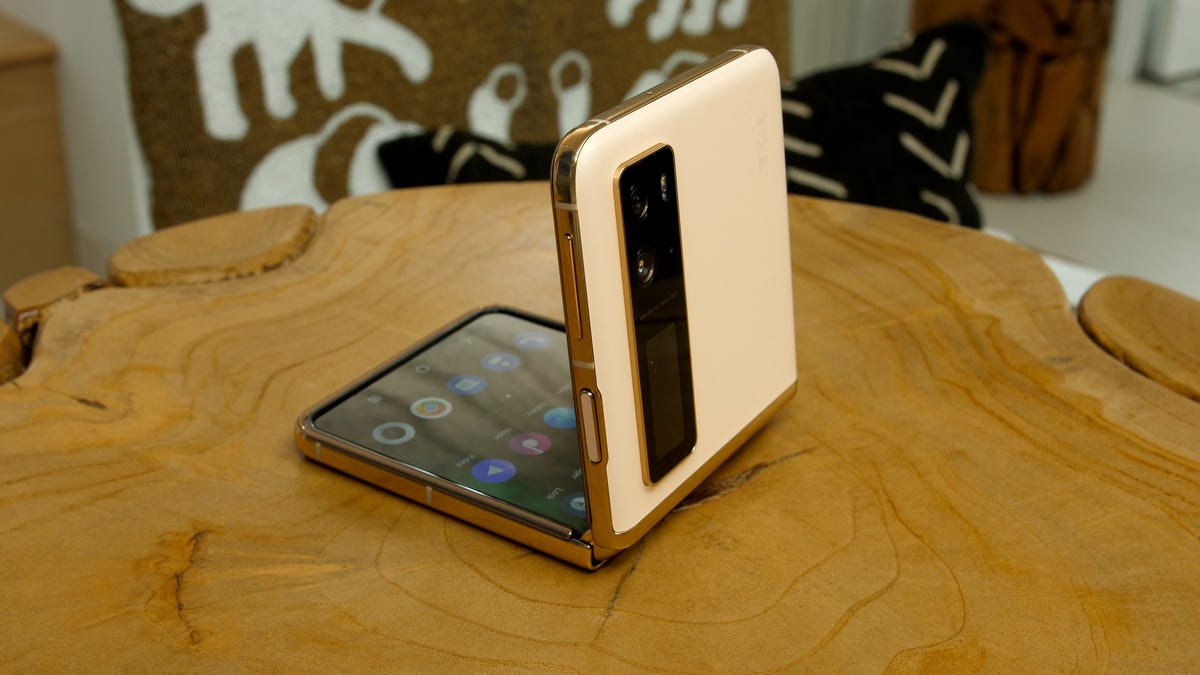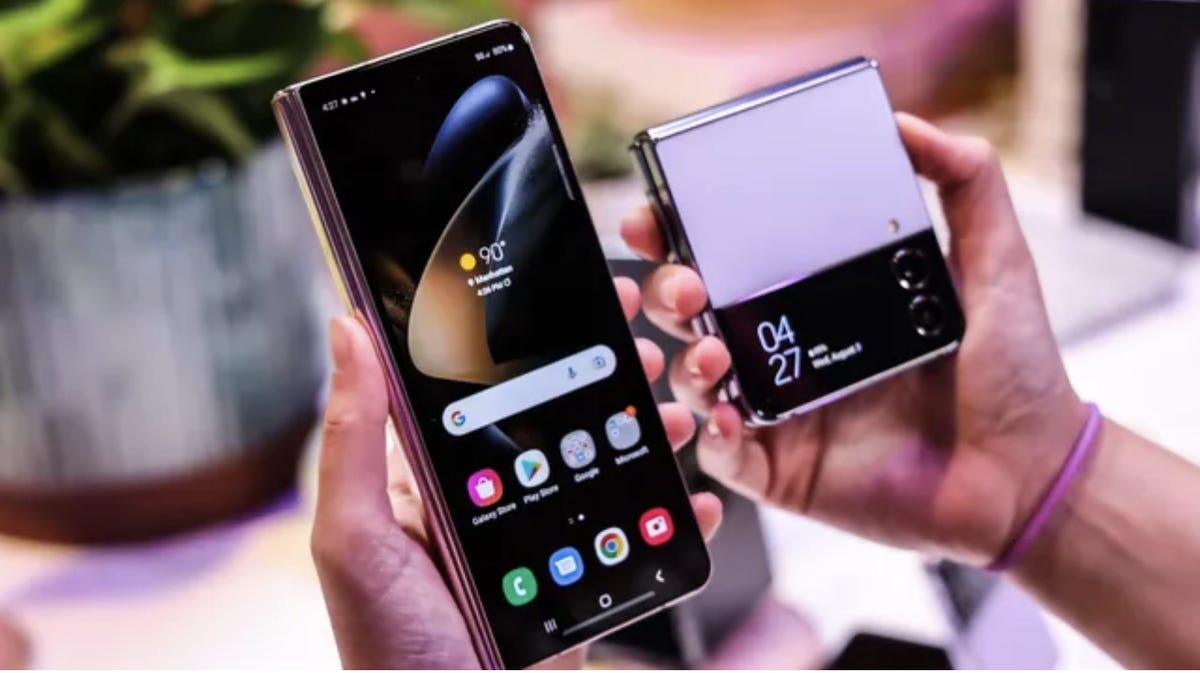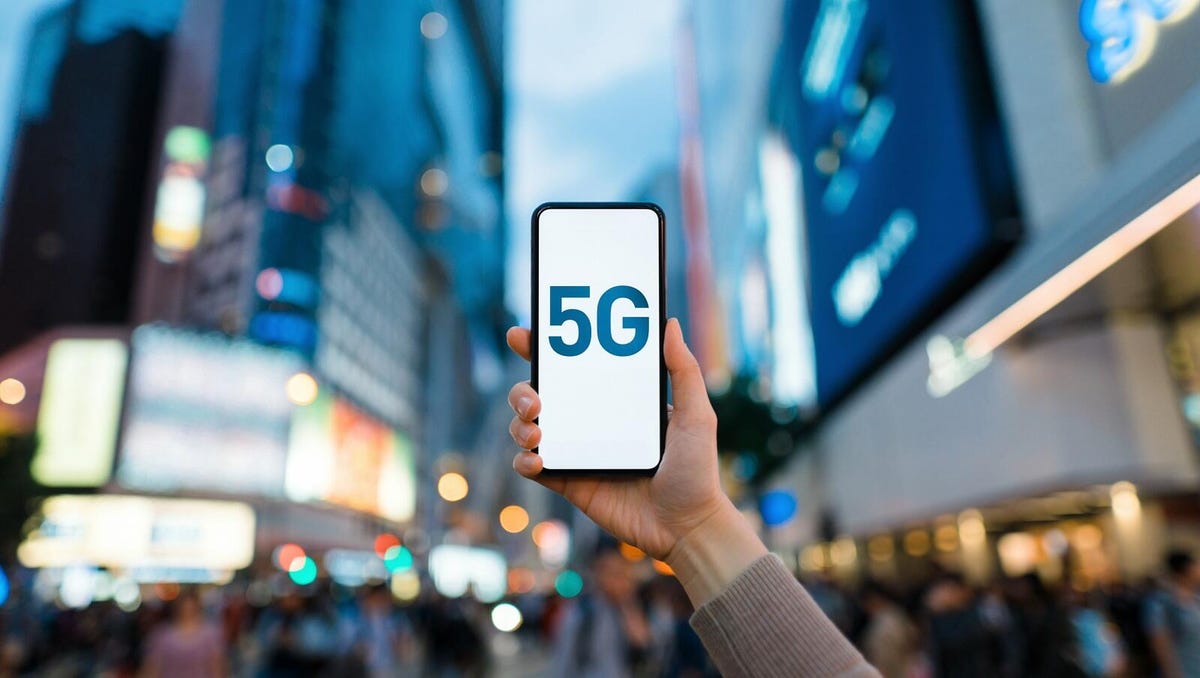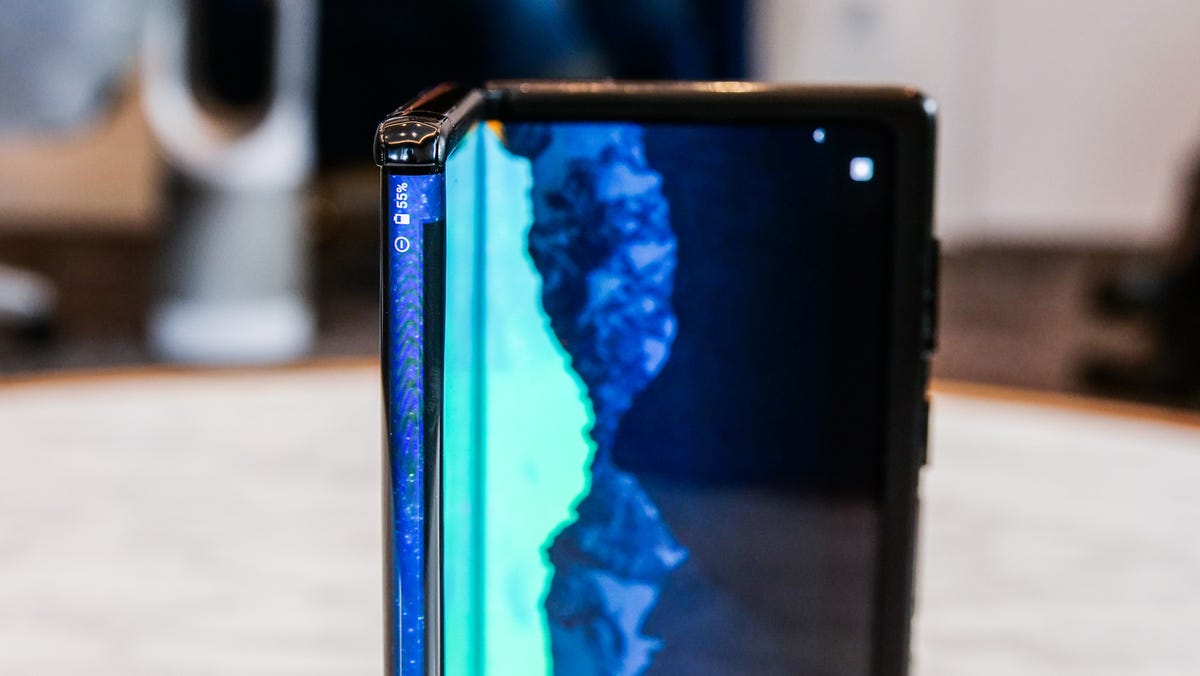
When TCL finally sells a foldable, it won’t be Chicago but could look a lot like it.
Richard Peterson/CNET
![]()
When you think of TCL, it’s probably because of their Roku-powered TVs, which CNET reviewers named among the best value for the dollar that you can buy over the past few years. The company said it could bring that price-to-performance approach to foldable smartphones.
TCL’s phone division is three years old now, after first releasing its smartphones at CES 2020, and it turns out they could have the biggest announcement yet: they could release a $750 clamshell foldable if they wanted that would be the cheapest foldable on the market.
The reason why they haven’t though is because apparently because the company isn’t convinced enough of us would buy it.
“Does it commercially make sense, now, to push [a foldable]? Probably not yet for us,” TCL general manager of global marketing Stefan Streit told said in an interview. “Of course, if the market starts to move, then yeah, we’re gonna do it because we can.”
It isn’t just theory either. TCL was poised to launch its first foldable, codenamed the Chicago Project, in late 2021. Despite having a model with nearly finished prototypes — Streit continues to use one as his personal phone — TCL shelved it, saying it couldn’t quite get the model’s price tag below the $700 margin. That threshold would be closer to its traditional phones, which are typically priced at or below $300, and more attractive compared to other, more costly foldables.
TCL’s perspective about foldables gives a little more insight into how this nascent, yet seemingly popular in theory, part of the industry is changing. Foldables were all the rage when they were first announced a few years ago. But, when people were finally presented with an opportunity to buy them, foldables were being left on store shelves.
The $999 Samsung Galaxy Z Flip 4 is currently the most affordable foldable you can get in most markets. The number of foldables shipped doubled in 2022 but still only made up 16 million of the 1.24 billion total phones shipped last year. TCL’s approach to more value-oriented tech has worked for TVs, and so a cheaper foldable could increase adoption in theory too.


Samsung
People aren’t excited
It’s only been four years since Samsung launched its first foldable in 2019, and people still see them as pricey niche devices rather than alternatives to the phones in their pockets.
The market for foldables is “growing but not exploding,” as Streit put it. It’s expected to grow by half again to 24 million units sold in 2023, says IDC regional director Nabila Popal, which is a better forecast than had been made for the industry last year. But even her farthest predictions of 45 million units shipped in 2026 is still not enough market saturation for TCL to get into foldables.
TCL is waiting for foldables to surpass 50 million units sold per year before it decides to jump in.
There’s another reason TCL doesn’t think more consumers will flock to foldables this year: Inflation has increased prices of basic goods. Premium phone sales haven’t been terribly affected by the turbulent economy of the last few years, but that’s more about wealthier people being able to weather the financial storm and keep buying $1,000-and-up Apple and Samsung flagships. Sales for midrange phones have slumped, which is precisely the $400 to $600 range where TCL sells its highest-end handsets.
That range is key for TCL, which is still a young brand in the phones market, having debuted its first devices three years ago at CES 2020. The company has kept its lineup in midrange prices, establishing TCL’s identity as high-value affordability to convince people to stray from more expensive phones from established brands like Samsung.
“We don’t have the brand power that people will pay $1,000 for a product from our side,” Streit said.


d3sign / Getty Images
Carriers want 5G now, not foldables
Consumers aren’t the only ones that need to get more excited about foldable phones before TCL launches one. Since carriers control so much of the US phone market, TCL needs to wait until they’re ready to support a foldable from the company — because right now, they’re only asking for 5G phones.
“They say, TCL, help us to continue to push 5G — that’s more important for us right now, this is where our focus is to get a return on investment,” Streit said.
As a result, TCL has focused on more affordable 5G phones, including some of the cheapest handsets that can connect to the next-gen networks. Carriers have spent the last few years investing heavily in their 5G networks, expanding range and coverage as they race to support more of the US population with faster speeds and higher bandwidth. European carriers have a similar focus on 5G, Streit said.
Foldables just aren’t a priority for carriers yet. TCL could release a folding device, but it doesn’t make financial sense to do so before carriers get excited enough to commit to supporting it.
“If the carrier comes and says, ‘Hey TCL I want you to do a foldable with these specs at this price and will commit to buy so many from you,’ then yes, we’re probably going to do it,” Streit said. “They’re not pushing for it right now.”


The TCL Fold n’ Roll concept.
Lisa Eadicicco/CNET
If not a foldable, what’s next?
While TCL waits for the right time to launch a foldable, it’s still experimenting with different screens.
At CES 2023, the company revealed its flexible screen technology, which could be used for foldable laptops like we’ve seen with the Asus Zenbook Fold. Like a scaled-up clamshell foldable phone, the folding laptop would be a big screen with a crease in the middle. Users could tilt the screen halves so that they could type on a digital keyboard on the bottom half while looking at the top half, or fold in more creative ways to make maximum use of the display area.
TCL is also debating whether to make a phone with a screen using NXTPAPER, its tactile display technology used in some of its tablets for a more tactile feel and better blue light filtering than LCD or OLED screens. The company is fishing for interest on whether consumers want phones to have this display tech, which can make it easier to read text on a screen for prolonged periods — if so, they could release a specialty version of a future smartphone with a NXTPAPER display.
TCL could always come around with an entirely different phone-size folding display, like the concept devices shown off ahead of MWC 2022, one that folded all the way around like a 2-in-1 laptop and another that folded and rolled. But while the company shows off wild ideas and gathers consumer feedback, it’s still tinkering with more practical models for the mass market. The key will be in having a device ready to catch the wave of demand when it comes.
“If the market moves, we definitely want to be there and have something,” Streit said. “It’s just that we don’t have the power to build the market ourselves.”
